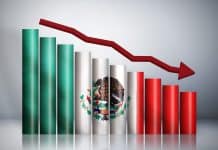Advertisements
People struggling to pay their debts in a crippled COVID-19 economy they can't avoid tough decisions, but they shouldn't let it crush them, says a University of Alberta financial expert.
Feelings of fear, frustration or shame can overwhelm the lucid thinking needed to cope with tough times, but try not to internalize it, advised Mike Maier, an accounting expert at the Alberta School of Business.
Advertisements

"Don't define your self worth by what you have," he said. "That can lead to low self-esteem and make it difficult to think about the future and how to build towards it." You have to keep that orientation towards the future, knowing that things will get better.
Advertisements
Although circumstances differ for everyone, it's smart to develop a plan to deal with money crises at home and avoid more. debts, he advised.
Prioritize your needs
Cut your family budget as much as you can to cover the most basic needs, food and shelter first.
“Food bills can be cut – sometimes by a lot. Don't buy junk food, focus on nutritious options and cook more at home instead of ordering out," Maier said.
To pay the rent, people who don't have money should take full advantage of government programs like the Canada Emergency Response Benefit, which offer some short-term relief to help bridge the gap, Maier said.
Similarly, homeowners who can't keep up with their mortgage payments should talk to their banks about deferring those payments for up to six months, a move recently encouraged by the federal government. This will cost the homeowner more in future interest payments, but provides some interim protection for people who have already invested a lot of money in their homes.
"It's a much better option than losing the capital you already have," Maier said.
Transportation is the other basic need that people may have if they need a vehicle to get to work, now or in the future. Continue to make the loan payments on that vehicle, but consider selling second- or third-family vehicles.
Consider debt payment options
Depending on whether you still have an income, there are a couple of options for handling large debtsMaier said.
Those with a stable source of income, even a reduced one, should try to make minimum payments on their debts. A loan will take longer to pay off, but keeping the minimum payments helps protect your credit rating in the long run. They should also ask lenders to consider lower interest rates.
“If the situation is serious enough, they should ask for help; if possible, they should avoid filing for bankruptcy," Maier said.
People without a stable income face more difficult decisions, he said.
Read More: Understand if you should organize your debts or change your strategy
“If you have no income or are unemployed and have no prospects for getting better, you are going to have to consider filing for bankruptcy or doing a consumer proposal, a court-supervised process that has a professional working with creditors on your name to develop a payment plan for the debts«.
Unfortunately, both measures will hurt a person's credit rating for some time: bankruptcy stays on the credit file for seven years, and consumer debt proposal for three years after the proposal process is complete.
For assistance, individuals should turn to licensed insolvency trustees, that is, federally regulated professionals who advise on whether bankruptcy or a consumer proposal is the most viable option. They can also deal with creditors on behalf of the debtor, Maier added.



